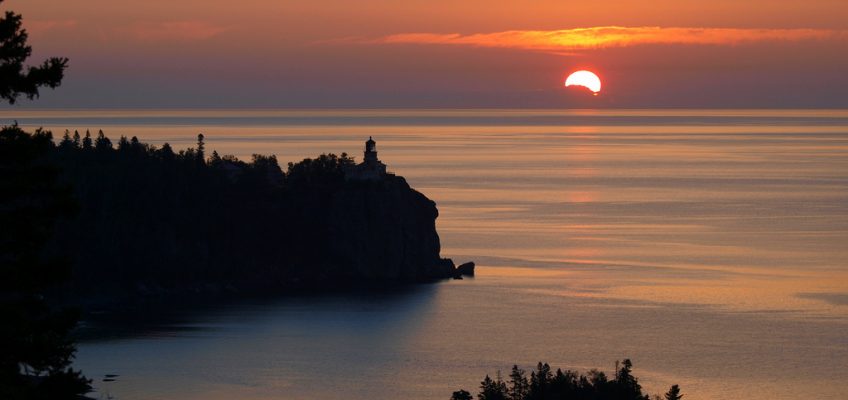CASTLE DANGER — A helicopter battling a small wildfire at Split Rock Lighthouse State Park on Minnesota’s North Shore of Lake Superior Tuesday had to be grounded and then sent back to base when an unauthorized drone was flying near the blaze.
Officials from the Minnesota Interagency Fire Center said the drone was spotted and the air crew was informed before any problems occurred. But they are asking the public to comply with federal and state regulations that ban drones near wildfires.
Firefighters with the Minnesota Department of Natural Resources and a DNR helicopter responded to the one-acre wildfire at Split Rock Lighthouse State Park. While the helicopter landed to refuel, DNR firefighters spotted the drone where they were working. The DNR helicopter remained grounded until firefighters confirmed the drone had landed, and then the helicopter returned to base.
When a drone is spotted near a wildfire, all responding aircraft are required to land or return to the airport until the airspace is clear, delaying firefighting efforts.
“We are fortunate this time the drone was spotted before it collided with the helicopter,” said Darren Neuman, aviation manager with the Minnesota Department of Natural Resources, in a statement. “Drone incursions are completely avoidable safety hazards that threaten the lives of everyone responding to the fire and nearby.”
Firefighters face tough conditions, smoke-filled air often limits visibility and a collision with a drone could cause an aircraft to crash.
“It’s simple, federal regulations prohibit the use of drones above wildfires,” said Neuman. “When they fly, we can’t.”
In addition to federal regulations on drone use, Minnesota law prohibits interfering with a firefighter in their official duties, including unauthorized drones that delay or restrict responding aircraft.
Already this season, Minnesota has seen more than 185 wildfires burn across more than 5,000 acres. With no snow across most of the state all winter, this is one of the earliest and driest spring wildfire seasons on record, and any period without rain will increase the danger that small fires could grow big. Fire danger increases on warm, windy afternoons and officials are urging caution with all burning.
Related Articles
Owner of Willmar massage business charged with forcing woman into prostitution
Girls state basketball roundup: Goodhue, Mountain Iron-Buhl advance to set up Class A title bout
Minnesota boys state tournament is a pageant of hockey hair
DNR tightens open water fishing regulations for Upper Red Lake
Minnesota DNR says Mille Lacs walleye fishing will be catch-and-release until mid-August


Leave a Reply